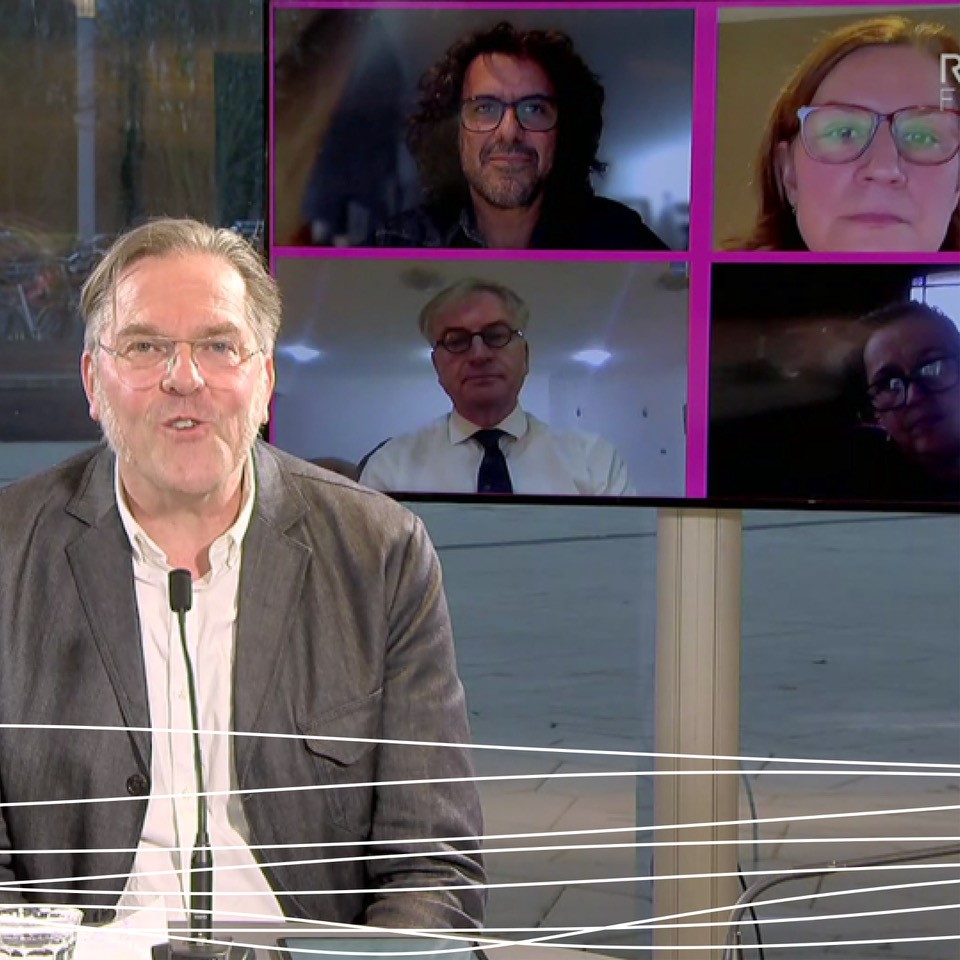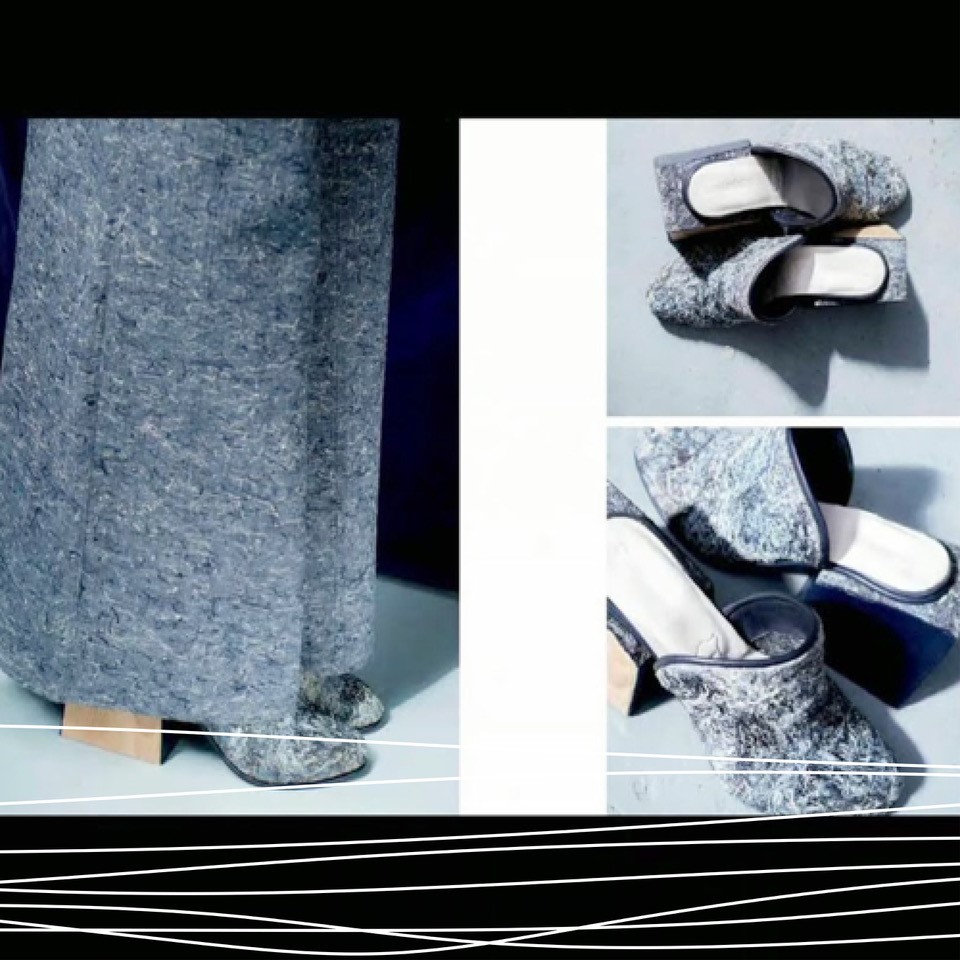Reframing Fashion Education in Europe through Sustainability, Entrepreneurship, and Heritage
What should the future of fashion industry education look like?
RE-FRAME FASHION: Innovation in Fashion Education was a virtual conference livestreamed on the 4th of December 2020 from Erasmus University Rotterdam (EUR), sharing the culmination of a two-year project surveying network opportunities with non-academic fashion partners, and piloting new courses with industry stakeholders as collaborators. Co-funded by the Erasmus+ Strategic Partnership Grant of the European Union, the project was led by EUR (one of the founding partners of the Culture.Fashion initiative) and run together with Université Paris Dauphine - PSL, Gdańsk University of Technology (GUT), and fashion stakeholders.

Since September 2018, the three universities interviewed more than sixty industry stakeholders across the Netherlands, France, and Poland to inform their course designs, focusing on new teaching methodologies.
The following year, three new courses
were piloted, each exploring the
themes,fashion and sustainability, entrepreneurship, and heritage, respectively.
Although the Covid-19 pandemic interrupted these three pilot
courses midway, they all managed to complete their curricula online, yielding
generally positive reviews from the students and partners involved. Each project partner shared their course outcomes at
RE-FRAME FASHION Conference to more than 200 registered attendees, who were encouraged to provide feedback and raise questions online.
Prof. Dr. Denis Darpy co-designed the
course, Sustainability and Fashion Behind the Scenes, for students of Dauphine’s MSc in Marketing & Strategy. Their course
introduced students to the local realities of
what ‘Made in France’ meant relative to the global fashion
value chain and engaged students in critical
production challenges faced by the industry, including
a sustainability communications challenge presented by Le Coq Sportif, a company who also hosted a class fieldtrip.
Dr. Magdalena Popowska of GUT partnered with Joanna Staniszewska, CEO of the marketing
agency You’ll, to design the Entrepreneurship & Creativity in Fashion
course for forty students studying for their MSc in International Marketing
Management. Their course centred on a business challenged presented by Warsaw-
based fashion brand,
BOHOBOCO, and student teams
were tasked to use mind maps to propose viable business model solutions and
engagement solutions towards identified consumers.
Finally, Prof. Dr. Ben Wubs and Dr. Mariangela Lavanga of EUR introduced their course Heritage and Fashion, which focused on understanding and discussing fashion heritage from the perspectives of business history and cultural economics. Masters students Erasmus Mundus Master GLOCAL and the Master in Cultural economics and Entrepreneurship had guest lectures and workshops by museum partners like the Victoria & Albert Museum, Centraal Museum Utrecht, Crafts Council Netherlands, and the European Fashion Heritage Association. The latter challenged student teams to propose solutions to a diversity of issues faced by digital fashion archives, through case-based learning. Students were trained and guided to write teaching case and teaching note in collaboration with Carla Gatt, a Senior Case Writer for the Rotterdam School of Management Case Development Centre. Two of the students’ cases were published as result.
Prof. Dr. Luciano Segreto, member of the Project Board from GUT, provided a reflection on the methodologies and development of this academic partnership, reiterating the challenge each university faced in designing a course that struck a balance between content depth and meaningful student engagement in novel ways. He praised the universities for leveraging the fashion industry as a platform to teach new skills and topics for students who had no prior exposure or experience in fashion, citing an example of one student in GUT’s course pursuing a thesis topic inspired from her learning experience. The diverse student presentations that followed the virtual intermezzo by guest DJ Blue Flamingo, further encapsulated the value students bring in producing meaningful perspective into some of the fashion industry’s pressing challenges in sustainability, entrepreneurship, and heritage. Recent Dauphine masters graduate, Bianca Demkin, presented her award-winning final project, Denimistry, which showcased the process, production challenges, and applications of her recycled denim textiles through prototyped fashion designs. Daphne Geveke, recent EUR pre- masters graduate, found that increasing the current, 10% of female leadership in the global fashion industry, would positively raise the fashion brands’ transparency before consumers. Maria Afanasieva, a recent EUR masters graduate, researched how heritage was utilised in luxury branding strategies, and vice versa.

Through its culminating roundtable discussion, RE-FRAME FASHION exemplified how academia can provide the space for a diversity of fashion industry stakeholders (from commercial brands to museums) to come together and continue the conversation of where their shared future was heading. From forecasting the impact of Covid-19 on the fashion industry and the importance of young talent driving new innovations, to reminding stakeholders to look beyond the lens of the commercial world alone and stakeholders suggesting academia explore decolonialisation further, the roundtable made clear that the future of fashion industry needs more collaboration between education and industry. For the RE_FRAME FASHION consortium at least,such discussions will continue productively through their forthcoming, joint-degree International Masters in Fashion Industry where new partners are invited to join.
The video of the conference will be soon available on the RE-FRAME FASHION website. The final report of the entire project “RE-FRAME FASHION; Innovation in Fashion education” is available for download here.